Keywords – 10 Useful Tools Supporting Keyword Research

How to choose keywords appropriately? It’s worth devoting some time to this area as properly selected phrases can improve your positions in the SERPs. The Internet abounds in numerous useful tools that facilitate and accelerate this process. Today we’re going to discuss 10 of them.
Everyone associated with SEO perfectly knows the meaning of keywords – without them, there wouldn’t be such a thing as the SEO industry. It might seem that these are only the words or phrases you put on the website. However, that’s not the end. Thanks to entering these words into the search engine, potential recipients or buyers can reach your page.
When doing SEO for your website, you shouldn’t forget about appropriate keyword density, location, or research. In today’s entry, we’ll discuss all these elements and show you tools that will make the selection of keywords for your website significantly easier.
Keywords: definition and types
Internet users enter specific keywords into the search engine to find products or phrases of interest. The higher a given website ranked in the search results, the greater the probability of visiting it. Your Google position is, among others, determined and affected by the keywords you’ve chosen for your page.
It’s possible to distinguish:
- brand keywords (such as company names),
- general keywords (or two-word phrases that don’t describe the searched product specifically)
- long-tail keywords (consisting of more than two words and specifying the query).
What mistakes to avoid when selecting keywords?
Apart from a website audit, selecting appropriate key phrases is one of the first tasks that ought to be performed by a page owner and SEO specialist. Every company has its own proven methods and tools that facilitate the task. However, real-life showed us the most frequent mistakes made when choosing keywords.
● Too many keywords
Theoretically speaking, you can select as many keywords as you wish, however, this solution isn’t truly profitable. It’s advisable to choose approximately from 3 to 10 keywords (on each subpage) that appear on the website the most frequently. If you choose too many key phrases, you automatically decrease their power (10 keywords mean that each of them has 10% of the power).
● Inappropriate keywords
If your keywords don’t outline the content accurately, you’ll attract readers but not those you care about. This will translate into a low conversion rate.
● No keyword prioritization
Make your best to ensure that your keyword list contains phrases that are somehow helpful for the website. It’s worth selecting the most crucial keywords and prioritizing them. Which words are important for your business, and which ones are fillers somehow related to the content?
Appropriate selection and application of keywords will certainly improve your website’s position in the search results and allow users to easily find it. It’s worth remembering that although the complexity of a key phrase translates into its smaller search volume, it also means that all SEO activities related to this particular keyword are easier to perform.

How many key phrases to choose?
It’s impossible to answer this question unequivocally. Every website is different and requires individual keyword research or analysis. Many clients who are just beginning performing SEO activities on their pages mistakenly believe that choosing a lot of keywords will help them quickly reach high positions in the SERPs.
However, Google robots are really smart, and they efficiently detect any keyword stuffing, which decreases the page’s position in the search results. Small uncomplicated websites with a few subpages don’t need 20 different keywords – selecting the most important 5 phrases will be full enough, and it’ll guarantee much better results.
How to choose the best keywords?
From the previous parts of the entry, you’ve learned what keywords are and how to categorize them. There’s one more question to answer – how to select keywords to make SEO activities profitable?
- Analyze what you actually do
The most effective way to facilitate keyword research is to think about your business, products, or services you offer. The location of your activity is also relevant – it would be perfect if you could narrow it down to one specific area, such as a city. After all, it’s much easier to do SEO for more accurate keywords like “dentist Detroit” and not just “dentist”. Obviously, your decision whether to do local SEO or not will be determined by the industry you operate in – a store selling mobile accessories may successfully sell its products globally.
- Take advantage of Google tips
When typing a given phrase into Google, you get search results that are both very accurate and only somehow related to your query. If you try to enter a “laptop bag” into Google, it’ll suggest you looking for a “laptop backpack” as well. Thanks to it, you already have two key phrases that you can potentially use in the SEO process. Predictive Google suggestions are also displayed when you type the query directly into the search engine – below, you can see a roll-out list with the most frequently searched words.
- Use keyword research tools
The Internet is full of both free and paid tools that support keyword research and analysis. Keep reading our article to learn about the most popular ones.
Avoid using only one word and too complex or grammatically incorrect phrases
When you enter “cars” into Google, it gives you like 10 610 000 000 search results. Quite a lot, isn’t it? With such an enormous amount, it’s hard to reach TOP Google positions. However, when you type in “used cars Chicago”, you’ll see only about 200 000 search results. The difference is pretty significant, and in this case, you can actually try to reach better positions. Unfortunately, the problem arises if the key phrase you use is too long. The probability that someone will find exactly “used cars from Germany in Chicago Magnificent Mile” is rather low. The situation looks similar if you enter grammatically incorrect phrases. Instead of using keywords like “used Chicago cars”, go for “used cars Chicago”.
- Benefit from keywords used by your market rivals
The online world offers various free tools like SEMstorm that are really helpful in checking key phrases used by your market rivals. On the other hand, if you aren’t familiar with your competitors, this tool allows you to see which websites are displayed on Google for similar keywords.
- Choose keywords that accurately present your services or products
Advertising something that cannot be found on the website will do more harm than good. Just imagine a dentist in Chicago who is displayed on Google when you enter a key phrase like “used cars”. The bounce rate of such a website will be much higher than the bounce rate of any page whose keywords accurately correspond to the content.
Top 11 tools supporting keyword research
Keyword tools are an indispensable part of the work of every SEO specialist, therefore, today we would like to show you 11 tools that are extremely helpful in keyword research.
1. Übersuggest
The tool is free and the data you get isn’t based solely on sponsored link campaigns. Übersuggest is primarily intended to tell the user which keywords are typed into the search engine. The results are provided in the form of an alphabetical list, which can be downloaded or displayed as text. By clicking on the arrow next to the keyword, you can view Google search trends. One of the greatest advantages of this tool is the possibility to research keywords in numerous languages. Regardless of the chosen language, the phrases and the results are very accurate.
2. Google Keyword Planner
(ads.google.com/home/tools/keyword-planner)
In many countries, including Poland, this is the most frequently chosen keyword research tool. However, it needs to be mentioned that it has one significant drawback – it provides data based on the number of clicks on an ad creative concerning a given keyword. In order to access Google Keyword Planner, it’s necessary to start a campaign, you can disregard payments, and you’ll still have access to the tool. When typing a selected phrase into GKP, you’ll receive information concerning the average number of searches per month, suggested CPC, and tips concerning activities performed by your market rivals. The first result always refers to the chosen keyword, however, below, you can see a list of similar phrases with big SEO potential. The tool also enables expanding the list of keywords for an existing ad campaign and combining phrases from different lists.
3. SEMrush
SEMrush is a tool that, apart from giving you the number of keyword searches and related long-tails, provides you with data concerning the phrase value, competitiveness, and CPC. Basic data insight is free, however, taking advantage of comprehensive reports requires buying access. The game is worth the candle, apart from the benefits mentioned above, the tool operates in numerous languages and provides access to general link profiles. SEMrush isn’t only a web application but also a browser extension, therefore, it can be beneficial in everyday work.
4. Google Trends
(trends.google.pl/trends/?geo=US)
This isn’t a typical keyword research tool, however, it significantly facilitates the process of selecting keywords as it works in real-time and allows you to check what phrases are currently popular. Google Trends allows narrowing the search results down to a specific region, date, or search engine. With its use, you can check which search queries were frequently used even a few years ago. After entering a selected keyword, you’ll see a trend chart and related phrases that can be ranked according to their popularity. Moreover, you can also check what factors encourage users to visit your website.
5. Keyword Combination Tool
(www.internetmarketingninjas.com)
The name is self-explanatory, this is simply a keyword combination tool. To create the ready key phrase, you use two fields – the first one to provide the main word such as a “dentist” and the second one to enter all words that you want to combine with the main keyword, like “Chicago, Magnificent Mile”. As a response, you get a list of related, most frequent phrases searched on Google, Yahoo, and Bing.
6. AnswerThePublic
(https://answerthepublic.com/)
This tool and its specific way of presenting the results deserve special attention. When you enter a keyword, you get a circle with long-tails. It’s intriguing because the key phrases are actually full sentences starting with words such as: which, how, who, e.g., “How does a dentist extract teeth?”. Thanks to it, you can literally find out what users ask Google about. Although AnswerThePublic allows keyword research in 10 languages, the results provided in English are the most accurate. Apart from the circle presented in the screenshot below, keywords are also listed alphabetically.
7. SEO Book Keyword Tool
To access this tool, you need to register for free. When you click on the SEO tools tab, you’ll see many tools that support keyword research and the SEO process. The tool dedicated to the selection of appropriate keywords is called simply the Keyword Tool. Unfortunately, it shows only English keywords. After typing in the word, you get data concerning its CPC and the number of Google, Yahoo, and Bing searches. The tool also provides long-tail recommendations and other keywords that may be helpful in the SEO process. The obtained results can be exported to a CSV file.
8. WordStream’s Keyword Research Tool
This tool enables quick and efficient keyword research based on sponsored link ads (PPC). You can access it by registering on the website, however, to fully benefit from the potential of WordStream, you need to pay. In return, you get a tool that will help you create an English campaign. After typing in the selected keyword, you receive data concerning its SEO potential and a list of related long-tails, everything is sent to your email address. While reviewing the results, you can remove words that aren’t of interest to you and leave those that can successfully support the SEO process.
9. Yippy
Yippy is a free tool that offers numerous language versions, however, it provides the most accurate results if you use it in English. When you type in a selected phrase, you won’t see a list of keywords and their search volume, however, on the left side, there will be suggestions of other words related to the selected word and can be combined with it. Moreover, the results can be grouped into thematic categories, sources, domains, or time frames that might help create long-tails.
10. Google Auto Suggest Keyword Tool
You can get keyword suggestions directly from Google. As you’ve probably noticed, every time you start entering a query into the search bar, Google tries to predict what you need and provides you with numerous long-tails. However, we don’t recommend this method – it doesn’t give any information on the phrases’ SEO potential, and the suggestions don’t necessarily correspond to the actual number of searches.
How to check if doing SEO for given words is complicated?
In order to check if doing SEO for a given word is easy or not, it’s necessary to use tools analyzing website traffic generated by that keyword and its popularity in the search results. Before deciding whether doing SEO for selected phrases will go smoothly, you need to take into account a few factors:
- number of key phrase searches per month,
- industry (the less popular, the easier the SEO activities get),
- market rivals (and whether they do SEO or not),
- region (the narrower, the better),
- the keyword as a long tail (multiword phrases like “dentist Chicago Magnificent Mile”),
- the target group
What decides about the competitiveness of keywords?
Specialists haven’t developed one ideal algorithm analyzing the competitiveness of key phrases yet. Every SEO professional advocates different methods and solutions. However, it’s possible to list certain general guidelines that might be helpful. When researching keyword competitiveness, take into account:
- quantity and quality of backlinks that redirect to TOP 10 websites related to the examined phrase,
- number of ad clicks and cost per click (CPC),
- number of ads displayed in the search results,
- keyword seasonality, words like “skiing” are more likely to be googled during the winter season.
Where to place keywords?
Proper keyword density is a crucial element of the SEO process. So do you know where to place your keywords? If not, don’t worry – we’ve prepared a special list of the most frequent keyword locations:
- Page title – placed in the html code in the tag <title>insert keyword here</title>.
- Description and keyword meta tag – while the first one significantly affects website position in the search results, the latter isn’t analyzed meticulously by Google robots.
- Page header – place keywords in all headers, from <h1> to <h6>.
- Website content – keyword density shouldn’t be too high, it’s recommended to use from 3 to 5 keywords in the subpage/entry content.
- To increase the keyword power, place them between the <page> and <em> tags.
- The domain itself is a perfect location for your main keyword. However, placing key phrases there is usually impossible since, in most cases, domain names are the same as company names.
- Picture alt. The keywords should be separated with “-”, not “_” or “.”, because Google can’t interpret the latter signs, and consequently, the robots see the “dentist Chicago” phrase as “dentistChicago”. It’s also advisable to place keywords in alternative image descriptions displayed if the picture doesn’t load and are read to visually impaired users.
- Anchor, which is text containing links redirecting to the website the anchor (meaning the text) is related to.
The takeaway
The selection of appropriate keywords is an essential activity that has an impact on the entire SEO process. Currently, the Internet abounds in numerous tools that can be used to improve website visibility in the search results. Try out the solutions we’ve analyzed in today’s entry, check which ones suit you best, and take advantage of the functionalities they offer.
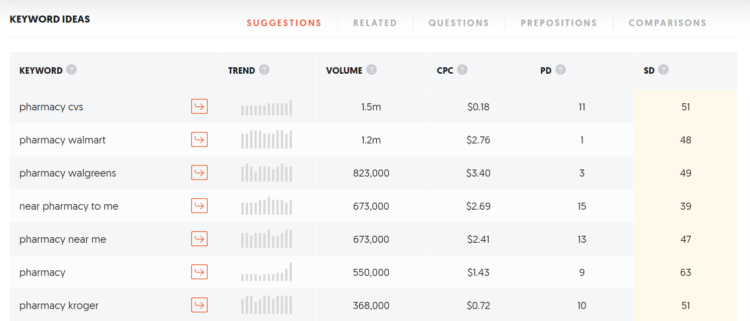
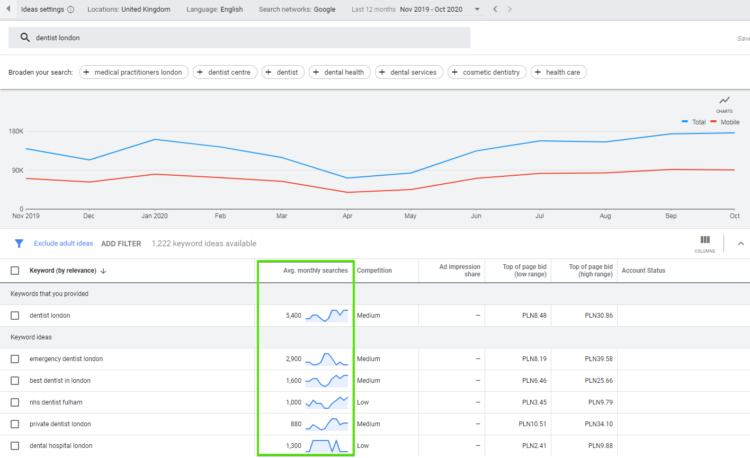
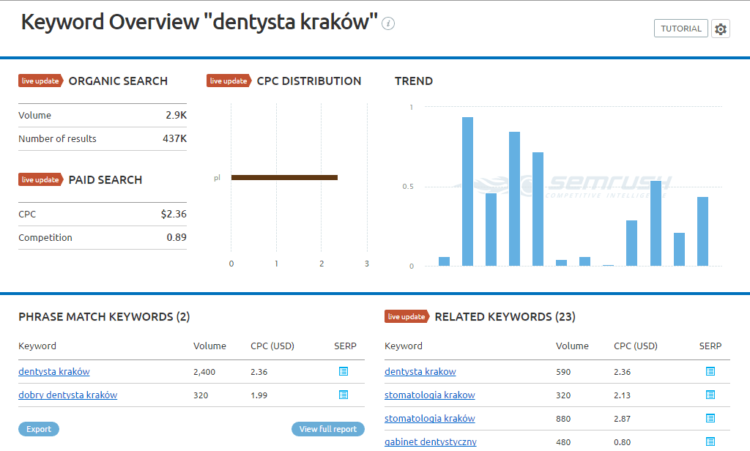
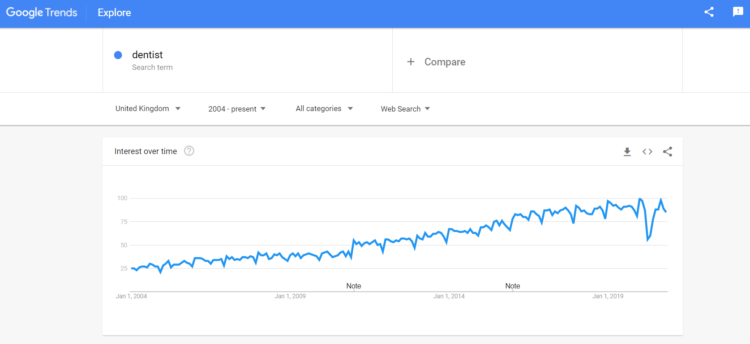
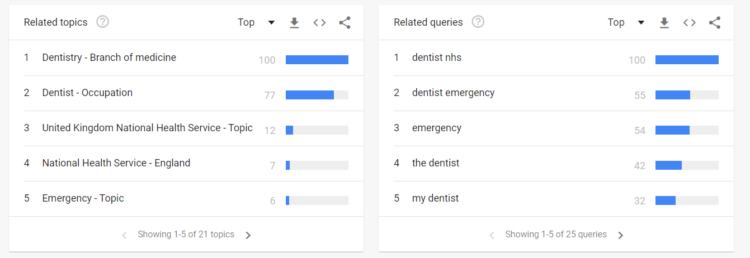
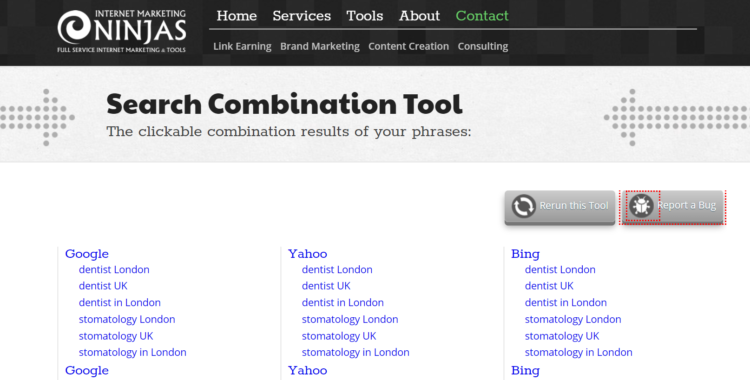
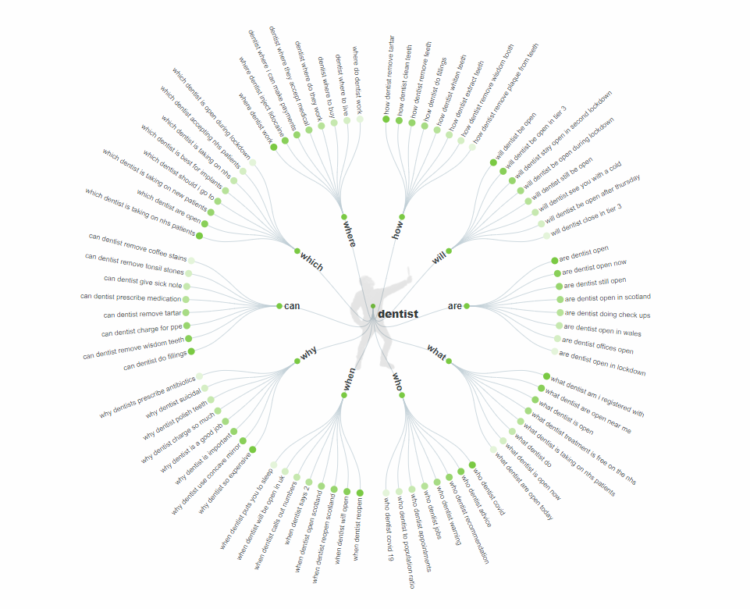
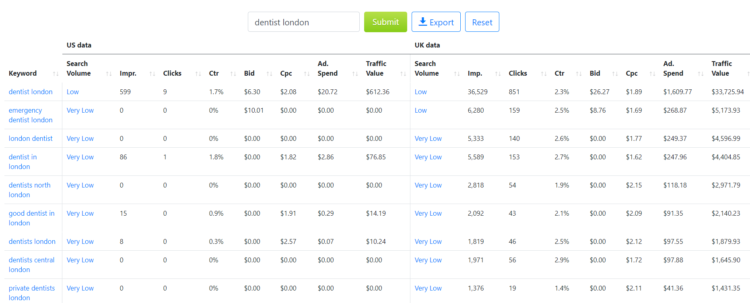
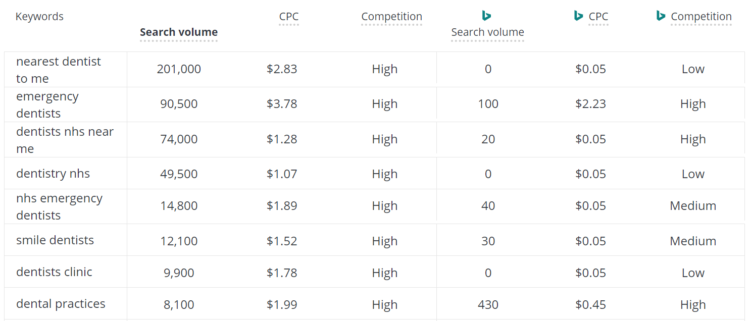
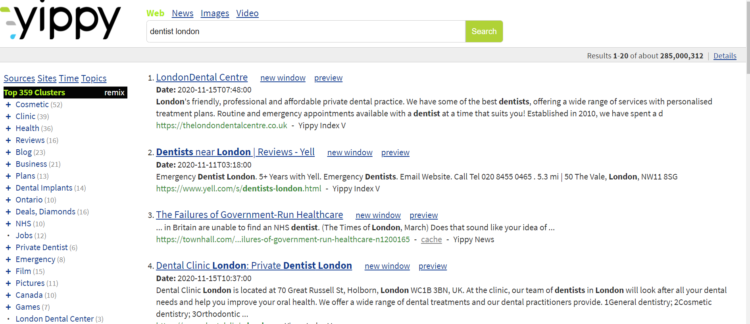
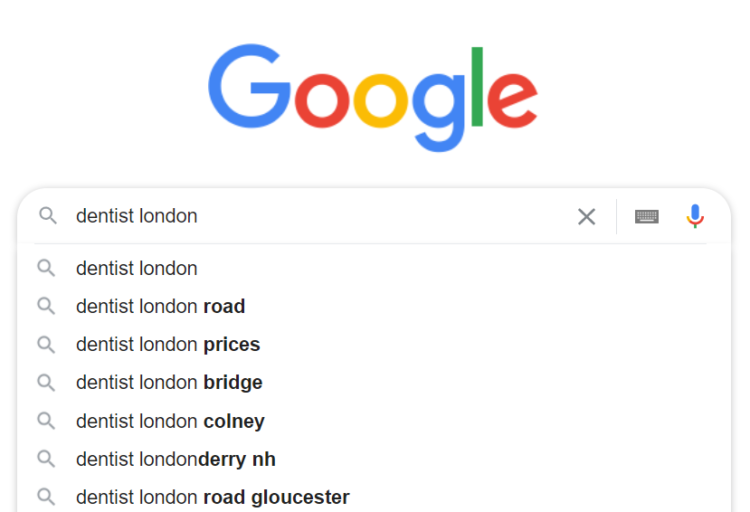



Nice article but I’d also mention that when doing keyrword research it’s worth going through the competitors’ websites or first Google results pages. This way you can notice some complementary phrases for the main keyword of your choice.
Agree, it’s worth taking a look there but from my experience, I usually end up using phrases I got from tools (or Google autosuggestions) as competition rarely has something more. Maybe it’s just the case of my industry (footwear) 🙂